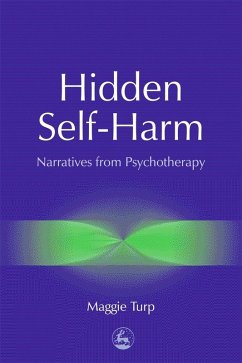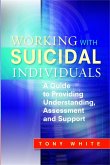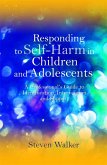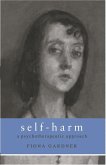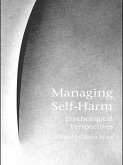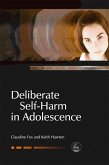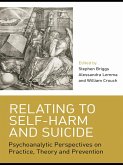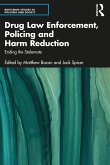This practical and accessible book of case studies takes a new look at self-harm, focusing particularly on the under-explored area of `hidden' self-harming behaviour. These behaviours may not be immediately identifiable as self-harm by counsellors, therapists or their clients, but Maggie Turp shows how recognition and understanding of hidden self-harm can improve practice with those affected.
The author begins by discussing extracts from infant observation studies that reflect on the role of maternal care in encouraging the tendency towards self-care. A series of detailed case studies follows, including a client who has a serious eating disorder, a client who abuses recreational drugs, works excessively to the detriment of his mental and physical health and sustains a series of unconsciously invited 'accidents', and one caught up in 'self-harm by omission', who fails to 'take care' and delays seeking vital medical care. The clinical accounts highlight the importance of attending to the client as a whole person and of building on the self-caring tendency that has prompted him or her to seek help in the form of counselling or psychotherapy.
Written from a psychoanalytic perspective, but using straightforward language, Hidden Self-Harm is a valuable resource for social workers, psychologists, teachers, nurses and lay helpers as well as for counsellors and psychotherapists.
The author begins by discussing extracts from infant observation studies that reflect on the role of maternal care in encouraging the tendency towards self-care. A series of detailed case studies follows, including a client who has a serious eating disorder, a client who abuses recreational drugs, works excessively to the detriment of his mental and physical health and sustains a series of unconsciously invited 'accidents', and one caught up in 'self-harm by omission', who fails to 'take care' and delays seeking vital medical care. The clinical accounts highlight the importance of attending to the client as a whole person and of building on the self-caring tendency that has prompted him or her to seek help in the form of counselling or psychotherapy.
Written from a psychoanalytic perspective, but using straightforward language, Hidden Self-Harm is a valuable resource for social workers, psychologists, teachers, nurses and lay helpers as well as for counsellors and psychotherapists.
Dieser Download kann aus rechtlichen Gründen nur mit Rechnungsadresse in A, D ausgeliefert werden.

